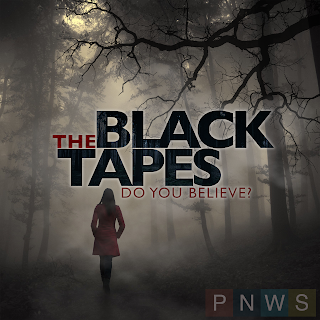Fact or Fiction
I’d never been a morning person, and more so than an the annoyances of waking up early, I worried about falling asleep at the wheel as I got accustomed to the new routine. Sure, I brewed coffee at home and brought it along, but more than that, I was looking for something to listen to that wouldn’t only catch my attention, but make it difficult to sleep. My mind turned to horror.
I’ve liked horror for quite some time—horror movies, horror stories in the written form. While I’ve never pursued the genre faithfully or comprehensively, I’ve always liked it. The limiting factor? Horror has a tendency to stick in my mind. For months following the first time I saw The Ring I was wary of sleeping in rooms with TVs for fear of the screen turning to the scene of a well, of a girl.
A horror podcast seemed like the ticket--something that might scare me to wakefulness, besides being a good fit for the onset of fall and approach of Halloween season. So it was that I came upon The Black Tapes.
The Black Tapes follows radio journalist Alex Reagan who comes upon Richard Strand, a creepy and enigmatic PhD who has made it his life’s work to disprove paranormal activity, going so far as to offer a cash reward to anyone who can prove existence of something paranormal. He’s aggressively skeptical, particularly inclined to push apophenia—a mental tendency for people to seek out patterns and coherence among events that are probably coincidental and unrelated.
The podcast features an ongoing background story of Strand’s wife having mysteriously disappeared years back, and the more foregrounded episodic investigation of the eponymous Black Tapes—a collection of cases that Dr. Strand hasn’t been able to prove as hoaxes, though he claims with confidence that he will eventually.
The early episodes of the show, in particular, gripped me. I rationed them out, deciding I’d only listen on my drives into work so as not to burn through them too quickly. Early cases include a demon who haunts a child (who the child ultimately, creepily refers to as his friend, Tall Paul), a local festival celebrating a grizzly murder in which the murder cut off the victim’s face and reattached it upside down, a mysteriously engineered sound that brings death to anyone who hears it within a year’s time. Alex’s likable narration and sense of humor keeps the show bearably light in its darkest moments. Strand’s skepticism is, at times, maddening, but also lends a sense of credibility to the show as we do entertain rational explanations, even to a fault. Moreover, conversations between Alex and her producer Nic about the journalist ethics of interviews lends an extra edge of the world I knew to these proceedings.
So, I became hooked. The show succeeded in entertaining me, keeping me awake, and capturing my imagination. That last effect impacted me, perhaps, to a fault, as I grew wary of shadows in the creaky old house we’d only recently moved into.
A few weeks into my time in Georgia, I realized an unexpected truth. An update to my smart phone’s operating system made it easier to see reviews of the podcast, and ones criticizing its voice acting came up first.
The revelation: the podcast was fictional.
Maybe it should have been obvious. Demons and ghosts and the like should have been red flags in the first place, but I clung to Strand’s skepticism as a rationale to accept that pieces of these stories were exaggerated or contrived by human machinations, and those pieces that weren’t—well, that’s where the fun of horror came in.
Learning that the show wasn’t real—that all of the voices I heard were those of voice actors and actresses, and that the developments of the show were not based on true events—rattled me. I have to admit that the show, and particularly its scares, immediately lost some weight with the revelation. In short, the next time I got in my car and pressed play on an episode, I found myself a bit less excited to begin.
There’s something borderline hypocritical about thinking less of art because it’s fictional, as a writer who focuses on fiction and a reader who has balked at friends who say they don’t read fiction because they “read for information.” And in those days to follow, there were positive aspects to the revelation. As one of my mentors, Nick Dybek, used to emphasize, one of the gifts of reading altogether, that’s particularly true of fiction, is the sense of adventure without actually assuming any real-world risk. Realizing that The Black Tapes was a work of fiction meant that, if I could give into it, I could still lock into engagement for the drive, without any reason for fear about Tall Paul giving me a visit at home after nightfall.
And there was, too, the matter of narrative satisfaction. A potential failing for this show was that the show might never reach any satisfying conclusions. After all, the parents of the child haunted by a demon stopped speaking to Alex in a believable turn that looked to cut off the show’s momentum. But knowing this was a realistic narrative contrivance rather than an actual dead end added hope that the show’s central plotlines would eventually reach a conclusion—maybe even a satisfying one, given the talents of the writers at hand.
The realization that the show was fiction revived an age old quandary of whether fiction or non-fiction were ultimately more satisfying—a largely pointless quandary because each have different aims, merits, and appeals, even when there are moments of overlap. Still, these moments make you wonder. Is a show like this less potent when you realize it’s not based in this reality? Might a story be more fulfilling after its reader realizes it was true? These questions, likely as not, will remain unresolved.


Comments
Post a Comment